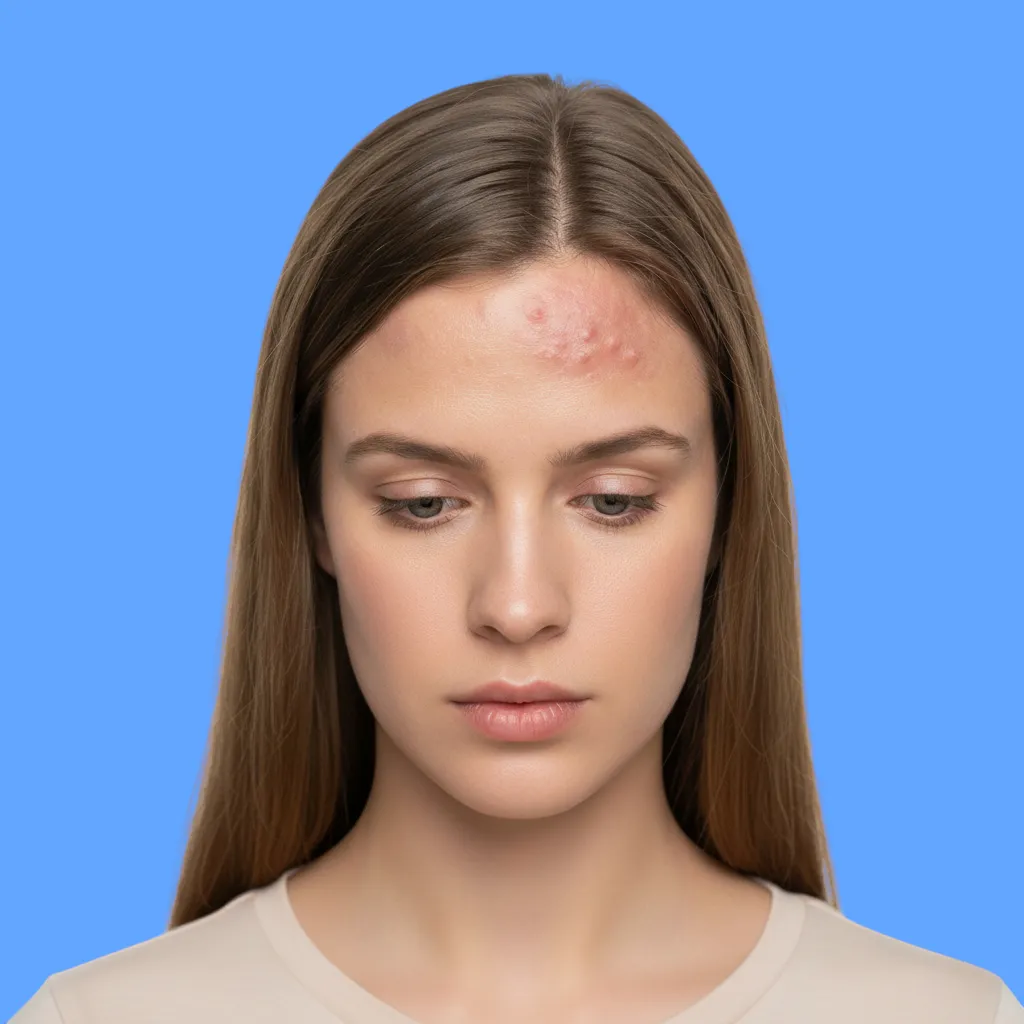what are scalp lesions?
Scalp lesions refer to any abnormal changes affecting the skin of the scalp, such as bumps, pimples, ulcers, or even flaky patches.
These lesions may appear in a specific area or spread across multiple regions, and they vary in size and shape.
Sometimes, they are accompanied by itching, pain, or even mild bleeding. Imagine waking up in the morning to find a painful red spot behind your ear, or feeling an annoying itch that won't go away these are signs that may indicate the presence of a scalp lesion.
what are the causes of scalp lesions?
There are several common causes of scalp lesions, including:
- Bacterial infections such as folliculitis or impetigo.
- Viral infections like chickenpox or shingles.
- Fungal infections such as tinea capitis.
- Chronic skin conditions like psoriasis, lupus, or acne.
- Irritation from chemical hair products.
- Allergic reactions to certain foods or medications.
- Head lice and the resulting scratches and sores.
- Sunburns or insect bites.
- Aging and dry skin.
- Vitamin and mineral deficiencies.
- Poor blood circulation.
- Chronic diseases such as diabetes or cancer.
what are the common symptoms of scalp lesions?

Patients may experience several common symptoms, including:
- Red or flaky patches on the scalp.
- Hair loss in specific areas.
- Persistent itching or burning sensation.
- Discharge or bleeding from the affected area.
- Fluid-filled bumps.
- Changes in skin color or texture on the scalp.
when should you see a doctor?
You should consult a doctor in the following cases:
- Symptoms persist for more than a week without improvement.
- Severe pain or discharge from the lesion.
- Sudden changes in the shape or size of the lesion.
- Recurrence of lesions after treatment.
- General symptoms such as fever or facial swelling.
how are scalp lesions diagnosed?
Scalp lesions can be diagnosed using several methods, including:
- Direct clinical examination of the scalp.
- Analysis of discharge or fluids from the affected area.
- Skin biopsy for microscopic examination.
- Blood tests to detect immune disorders or infections.
- In some cases, imaging or scans may be used to assess the spread of the lesion.
what are the available treatments for scalp lesions?
There are several treatment options for scalp lesions, including:
- Antibiotics or antifungal medications depending on the type of infection.
- Topical creams containing corticosteroids to reduce inflammation.
- Medicated shampoos for dandruff or fungal infections.
- Antihistamines for allergic reactions.
- Home remedies like tea tree oil or aloe vera gel.
- In chronic cases, phototherapy or biological treatments may be used.
can scalp lesions be cured?
In many cases, yes. Most scalp lesions are benign and improve with proper treatment. However, chronic or autoimmune cases may require long-term follow-up. Early diagnosis and adherence to the treatment plan are key.
what are the prevention tips for scalp lesions?
Here are several tips to help prevent scalp lesions:
- Wash your hair regularly using a suitable shampoo.
- Avoid harsh chemical hair products.
- Do not share hair care tools with others.
- Maintain a balanced diet.
- Avoid stress and psychological strain.
- Keep the scalp moisturized and prevent dryness.
- Consult a doctor if any unusual symptoms appear.
what are the possible complications of scalp lesions?
Neglecting treatment may lead to several complications, including:
- Spread of infection to other parts of the body.
- Permanent scarring on the scalp.
- Permanent hair loss in some cases.
- Worsening of the condition due to unsuitable products.
- Secondary infections caused by scratching.
frequently asked questions about scalp lesions
Are scalp lesions contagious?
Some types, such as fungal or bacterial lesions, can be contagious. It is advised not to share personal items.
Can scalp lesions cause hair loss?
Yes, especially if accompanied by inflammation or frequent scratching.
Does mental health affect scalp lesions?
Yes, stress and psychological pressure can worsen the symptoms.
Can natural oils be used for treatment?
Some oils, like tea tree oil, are beneficial, but you should consult a doctor before use.
Do scalp lesions appear in children?
Yes, especially in cases like head lice or cradle cap in infants.